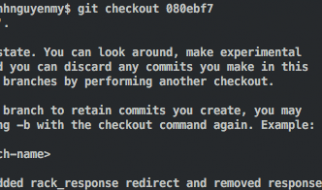Guinea pigs are naturally very social animals. They love the companionship of their human owners, and they need daily interaction with you to stay healthy and active.
The average adult guinea pig can live up to 8 years if it is properly cared for, including diet and exercise.
You love your pet, and you want them to live a long and healthy life. When they make an unexpected sound, you may get worried.
Guinea pigs communicate through a variety of sounds, including a chirp or whistle-like noise. So, why do guinea pigs chirp?
Guinea pigs cannot speak to us with words, but they can communicate through noises and body language. If you want to learn more about them, study their regular behavior and learn what these different noises mean.
Unfortunately, chirping is one of the more mysterious noises they make. Many have tried to decipher the meaning behind the chirps, but there is not a clear answer.
A guinea pig chirping sounds very similar to a bird. In fact, if they are making this noise you may wonder if a bird has gotten into your home.
The chirp is often accompanied by your pet being in a ?trance-like? state. They are likely still or frozen in place as they chirp.
Their bodies may move slightly with the motion required to make the noise. Their lips will move back and forth as well. If you have other pigs, they may also stop moving until the chirping stops and normal activity resumes.
Some animal experts theorize that the chirping sound occurs when your piggy senses danger or they become frightened.
The reasoning for this is that they do not move and seem frozen in place while they make the noise. The chirping can continue for several minutes without interruption.
Others have noticed the noise after the death of another one of their pets. They believed the sound was caused because the pig was lonely or missing their companion.
Cavy owners have also reported the noise when their guinea pig was seeking attention and wanted to play.
For some pets, the noise could indicate happiness or excitement. The only way to tell what the noise really means is to judge their behavior before, during, and after the chirping.
If they seem stressed or tense, it is not likely a happy noise. If they want to play or get excited about food, the chirping is likely nothing serious. While there is no definite explanation for why they chirp, the noise is normal for your pet.
This video shows guinea pig signs like a bird.
Why do guinea pigs chirp at night?
While the chirping noise is rare for guinea pigs, it most often occurs at night. Again, the reason for this is not known. If the sound is due to stress or fear, they may hear unfamiliar noises or see shadows cast at night.
The sound can continue for quite a while, and some pet owners find it annoying in the middle of the night. You can try to talk to your piggy in order to calm them and stop the noise.
You should also check their supply of water and hay. It is possible that the chirping noise is their way of getting your attention.
They may be in need of something and unable to communicate to you. If you want to minimize your guinea pigs? noise at night you can find a step by step guide I wrote all about what you should know about these noises and sounds.
Do guinea pigs chirp when they are happy?
It is possible that your guinea pig can chirp when they are happy. If they seem to be excited and full of energy while chirping, this is likely the reason.
However, excited vocalizations usually sound more like whistling. They emit high pitched squeals when they are happy to play with you or receive food.
Whistling noises are more common than chirping, and they almost always indicate excitement. Based on current theories, the chirping noise is usually not because they are happy. It is most often associated with stressful situations or a scared piggy.
How do I know if my guinea pig is happy?
As a cavy owner, you want to know that your guinea pig is happy with you. But how can you tell if they are happy? There are a few common vocal communications that they make when they are happy.
They can also share their emotions through their body language. Frequent signs that they are happy to include:
- Whistling: The higher-pitched noise they make when they are excited.
- Purring: When the sound is deeper and feels more relaxed, your guinea pig is happy. They could enjoy you petting them or holding them when they make this sound.
- Popcorning: They hop up and down very quickly to convey happiness.
- Rubbing noses: This occurs between pigs to show friendliness with one another.
- Licking: This could be a sign that your pet is happy and content with you.
- Socializing: If they frequently play and interact with you, they enjoy being around you. Your presence makes them happy.
- Sniffing: They sniff one another to learn more about the other animal.
Over time, you will learn the normal noises and behaviors for your guinea pig. You will be able to instinctively tell when they are happy.
If they seem out of sorts and behave differently than normal, they may just be annoyed or scared for the time being. Unusual behaviors that continue for long periods of time could indicate illness, and you should check with your vet in these cases

